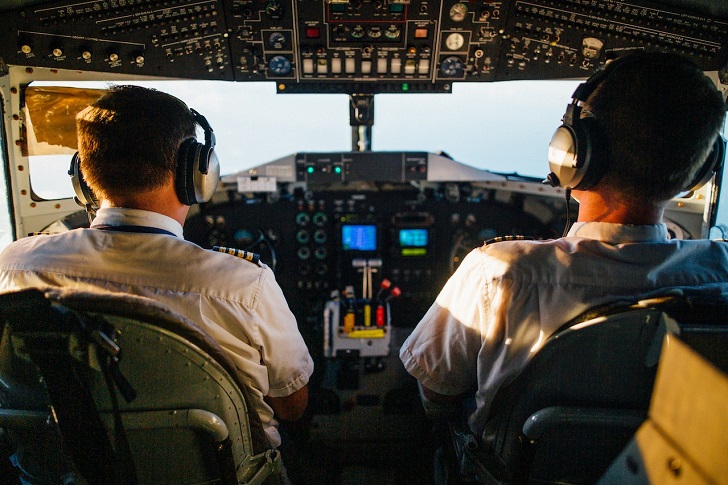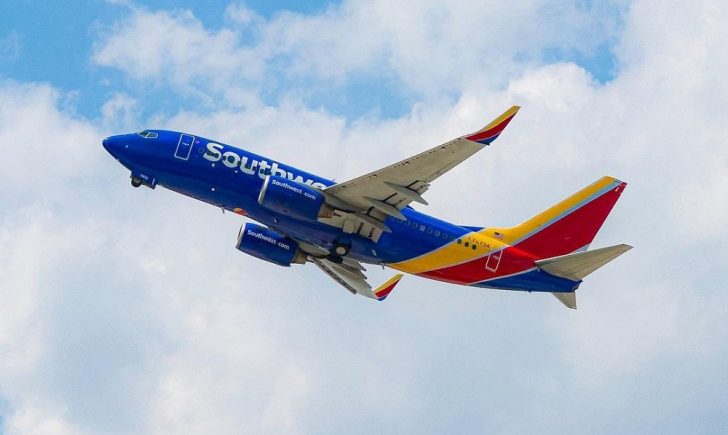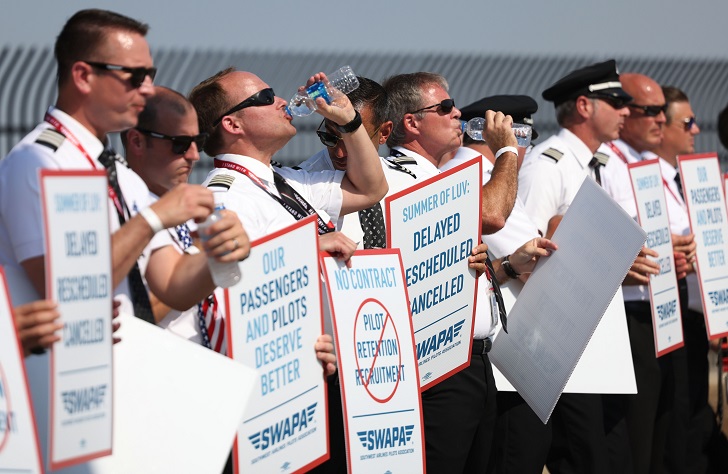The turbulence in Southwest Airlines' operations during the 2022 Christmas season sent shockwaves through the travel industry. But brace yourself, because a looming pilot strike could make that chaos look like a minor hiccup. With outdated technology and pilot scheduling woes, Southwest may soon find itself with fewer pilots than it needs.
In this article, we'll delve into the details of this impending crisis, exploring the reasons behind the pilot strike threat and its potential consequences.

Kelly/ Pexels | For nearly four long years, Southwest Airlines has been locked in negotiations with the Southwest Airlines Pilot Association (SWAPA)
Prolonged Negotiations and SWAPA's Concerns
For nearly four years, Southwest Airlines has been in negotiations with the Southwest Airlines Pilot Association (SWAPA), its pilot union. Remarkably, Southwest remains the final major airline without a finalized agreement with its pilots, a stark contrast to American, Delta, and United Airlines, which have already completed negotiations.
Although these talks typically centered on pay increments, SWAPA President Casey Murray revealed that Southwest's primary challenge revolves around pilot scheduling and productivity. Murray strongly opposes pushing pilots to their limits, advocating against their operation of three or even four flights daily.
In an email statement, he underscored the seriousness of the situation: "Last year, our pilots lost 35,000 days off due to involuntary work on off days. July 2023 marked the highest number of fatigue calls in SWA history.

southwestair/ Instagram | The gap between Southwest and its pilots appears to be widening, and the looming threat of a strike casts a shadow over the airline's future
To excel, SWA must address the scheduling system. Presently, SWA's focus is on avoiding failure through schedule reductions and preemptive cancellations, which prevents genuine success."
Southwest's Unpreparedness for a Potential Strike
It's becoming increasingly apparent that Southwest Airlines is ill-prepared to handle a pilot strike. However, it's essential to acknowledge that no airline is ever fully prepared for such a scenario. Yet, due in part to the scheduling issues that plagued Southwest during the previous Christmas season, passengers are understandably anxious about booking their upcoming holiday travel with the airline.
Murray's criticism of Southwest's scheduling practices resonates with many. He attributes the problems faced by the airline to mismanagement in scheduling, a critical issue that needs immediate attention.

southwestair/ Instagram | It's becoming increasingly apparent that Southwest Airlines is ill-prepared to handle a pilot strike
Southwest's Response and the Road Ahead
Adam Carlisle, Southwest Airlines' Vice President of Labor Relations, aimed to allay concerns by expressing confidence: "We believe the mediation process will further propel us toward a definitive agreement that benefits our Pilots and bolsters our business." While his words provide a degree of comfort, it remains essential to note that Southwest is presently approximately a year behind other carriers in pilot negotiations.
Yet, it's critical to emphasize that these negotiations have persisted for nearly four years. The disparity between Southwest and its pilots seems to be expanding, with the imminent possibility of a strike casting a pall over the airline's future.
